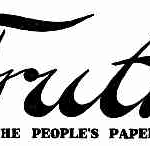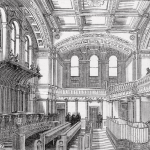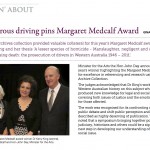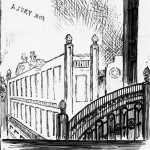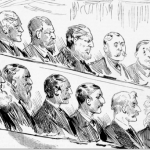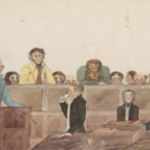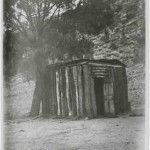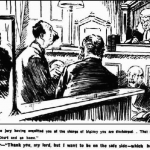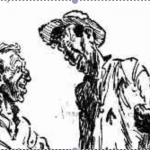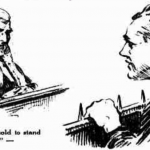Research Brief 16 In January 1924, an article in Sydney Truth alerted its readers to a spate of crimes against children that had recently appeared before the courts. Sexual offences against three girls and one boy had been committed in various suburbs around the city within a matter of weeks. While the […]
The court as spectacle
Research Brief 15 The principle of open justice – referring to the transparency of the trial process – has a long history. Courts in ancient Greece, for example, were constructed with low walls so the public could observe the proceedings while attending to their ordinary business. Similarly, following the Norman Conquest, courts were […]
Dr Kerry King, Research Fellow wins Medcalf Award
Read the article in the Trust News, Western Australia by Gina Pickering – congratulations Kerry!!
The rise of the guilty plea
Research Brief 14 When most of us think of criminal trials, our general point of reference is popular culture. Courtroom dramas like Janet King, Rake, and Law and Order typically script a characterisation of a full prosecution process. There are the pre-trial activities by police: an investigation, interviews with witnesses and suspects, and charges […]
Juries and impartial justice
Research Brief 13 In 1898, police constable Edward Johnson was committed for trial on larceny charges. Johnson, acting in his official capacity, had allegedly received an overdue rates payment from a householder at Bendigo, and neglected to pay it into the council fund. In December Johnson was duly tried, but the jury failed to […]
Criminals in the courtroom
Research Brief 12 In 1837, wealthy landowner and ex-magistrate James Mudie returned to London and published a book entitled The Felonry of New South Wales. In it, he described the law courts and the legal profession in New South Wales as “a sink of corruption and iniquity, detestable profligacy and disgusting filth”. Did Mudie’s […]
What’s in a name?
Research Brief 11 The forms of law can appear opaque. Ostensibly they are designed to ensure a measure of due process. Their impact on accused and complainants may be unpredictable. During the nineteenth century governments tried to formalise and even simplify the process by which criminal charges were brought and trials conducted. An early […]
Love and deceit
Research Brief 10 For the past several weeks, radio listeners who tune in to the drive-time programme of comedians Dave Hughes and Kate Langbroek have been enthralled by the unfolding saga of Barb and Niko. Barb is Langbroek’s online alter-ego, whose dating profile – depicting her as a rich middle-aged widow – was designed […]
Speaking positions
Research Brief 9 In April 1905, elderly Henry Ayling appeared before Judge Burnside and a jury of 12 peers in the Perth Criminal Court on a charge of bigamy. The key question during the trial centred on the validity of Henry’s first marriage, alleged to have occurred in Adelaide in 1877 almost 30 years […]
Swearing children: The nature of an oath
Research Brief 8 For the adversarial trial, the oath symbolizes the ascertainment of truth. Truth is emphasized in the witness swearing to tell the truth, the whole truth and nothing but the truth. Historically, the swearing of an oath by a witness at trial had a number of significant implications. Those who were foresworn […]

